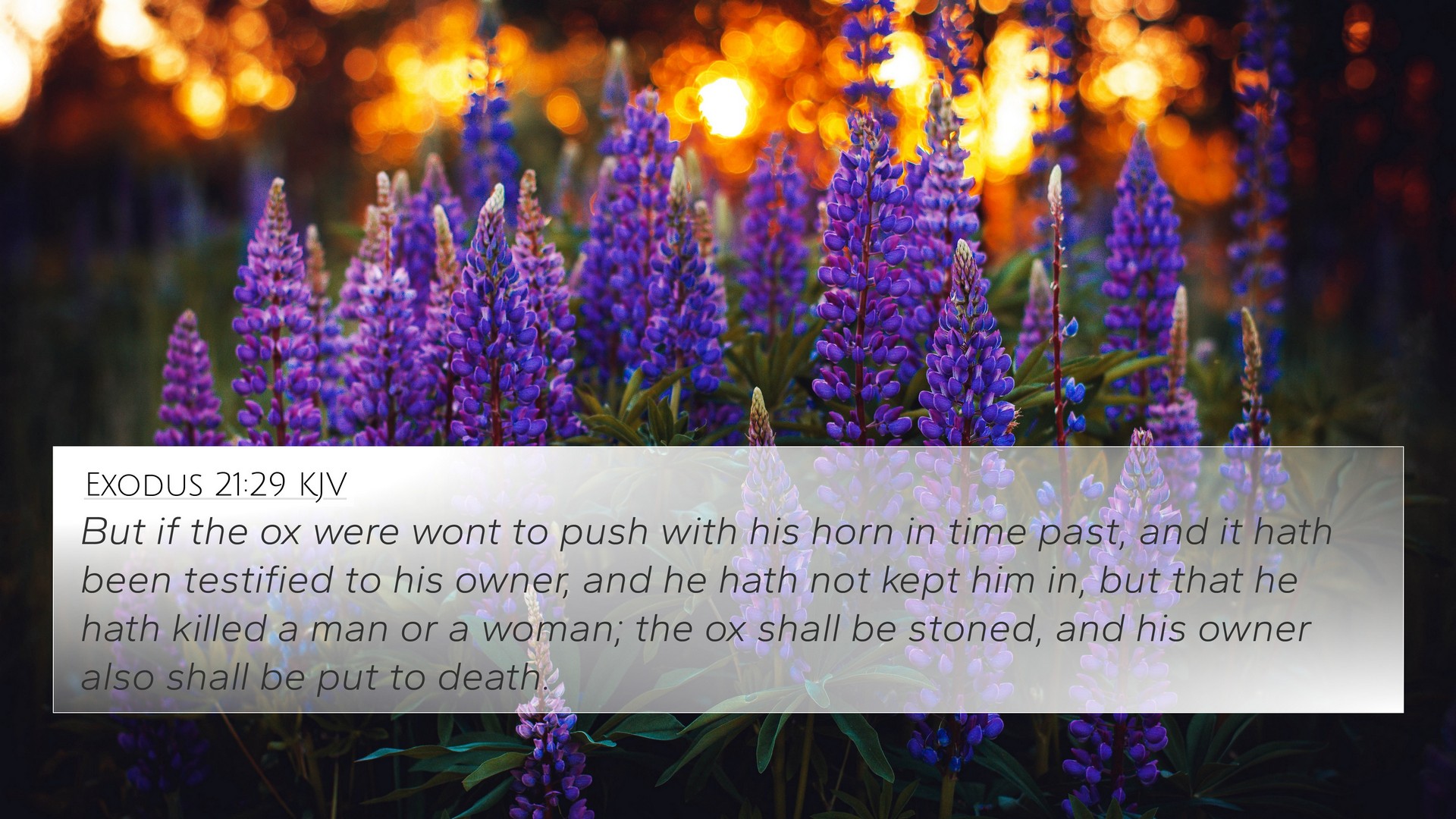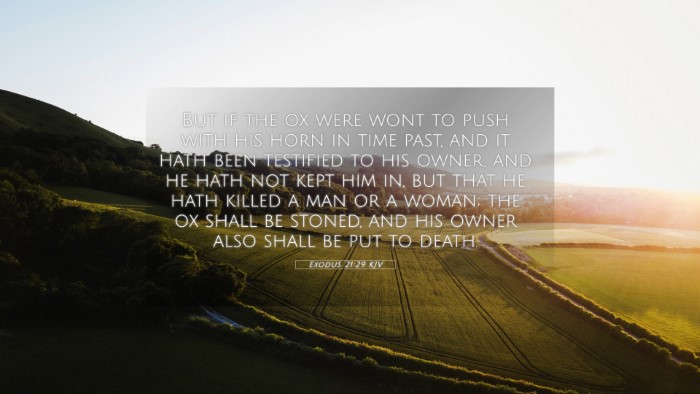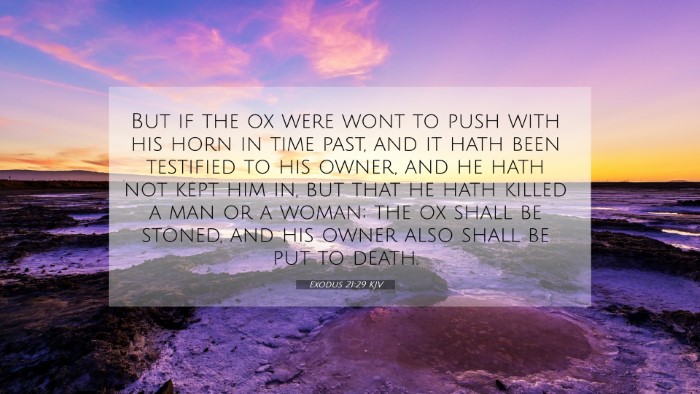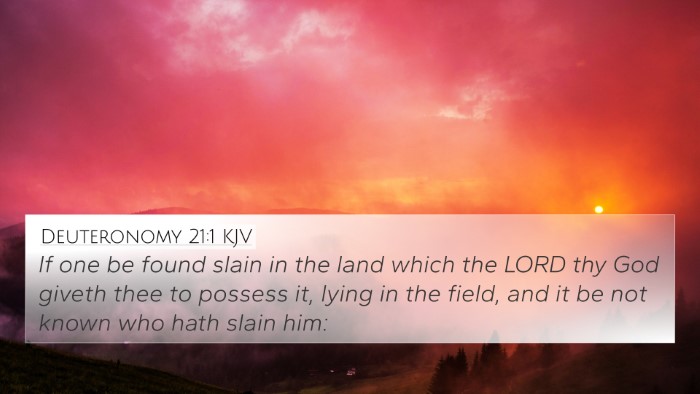Exodus 21:29 - Interpretation and Commentary
Verse Overview: Exodus 21:29 states: "But if the ox was accustomed to gore in former time, and his owner hath been warned, and he hath not kept him in, but that he hath killed a man or a woman; the ox shall be stoned, and his owner also shall be put to death."
Meaning and Insights
This verse presents a legal case regarding liability in the event that an ox, known for aggression, injures or kills a person. The law reflects principles of responsibility and justice within the community.
Responsibility and Accountability
Matthew Henry’s commentary indicates that the intent of this law is to highlight the owner's responsibility. If he was aware of the ox's temperament and failed to control it, he bears significant liability for the harm caused. This principle extends beyond mere obedience to societal laws; rather, it's an imperative for ethical stewardship of one's possessions and animals.
Consequences of Negligence
Albert Barnes elucidates that the primary focus is accountability. The consequence of the owner’s negligence is severe—both the animal and the owner face capital punishment. This illustrates the biblical principle that negligence leading to death carries significant repercussions, emphasizing strict liability in cases of known danger.
The Value of Life
Adam Clarke notes that the life of the victim is portrayed as sacred, thus any act that results in death, whether accidental or negligent, demands serious consequences. This further emphasizes the weight of moral responsibility embedded in societal laws within the Scriptures.
Connections with Other Scriptures
Exodus 21:29 interlinks with various other Biblical texts that elaborate on the themes of justice, accountability, and the sanctity of life. Here are some cross-references that enrich the understanding of this verse:
- Leviticus 24:17: "And he that killeth any man shall surely be put to death."
- Deuteronomy 19:21: "Thine eye shall not pity; but life shall go for life, eye for eye, tooth for tooth, hand for hand, foot for foot."
- Matthew 5:21-22: Jesus teaches about the seriousness of anger and its moral implications, connecting it to murder.
- Exodus 21:36: Discusses responsibility in the context of property that poses danger to others.
- Numbers 35:31: States that atonement cannot be made with money for murder.
- Galatians 6:7: "For whatsoever a man soweth, that shall he also reap," applying the principles of accountability.
- James 2:10: "For whosoever shall keep the whole law, and yet offend in one point, he is guilty of all,” linking moral obligations across the law.
Thematic Connections and Comparative Analysis
Linking Bible scriptures reveals consistent themes across the biblical narrative. The mandate of justice found in Exodus resonates with teachings throughout both the Old and New Testaments. This harmonization demonstrates how ancient laws shaped moral perspectives, evolving into the New Testament teachings of responsibility towards one another.
Tools for Bible Cross-Referencing
For those seeking a deeper understanding of scriptures, employing tools for Bible cross-referencing can enhance your study. Consider using:
- Bible concordance: An essential tool for finding specific verses and their connections.
- Bible cross-reference guide: Provides insights into thematic connections between disparate verses.
- Cross-reference Bible study methods: Techniques that facilitate understanding connections between biblical texts.
Application for Modern Readers
Understanding Exodus 21:29 encourages readers to appreciate the seriousness of accountability in their actions. It reflects on moral responsibility not just in legal contexts but within everyday life. How do our actions towards others impact our community? This verse and its surrounding context serve as a reminder of the sanctity of life and the weight of negligence.
Conclusion
Exodus 21:29 stands as a testament to the framework of accountability, responsibility, and justice that permeates the Bible. The interconnectedness of this verse with others highlights the importance of understanding scripture in a holistic manner, promoting a deeper appreciation for its teachings.



